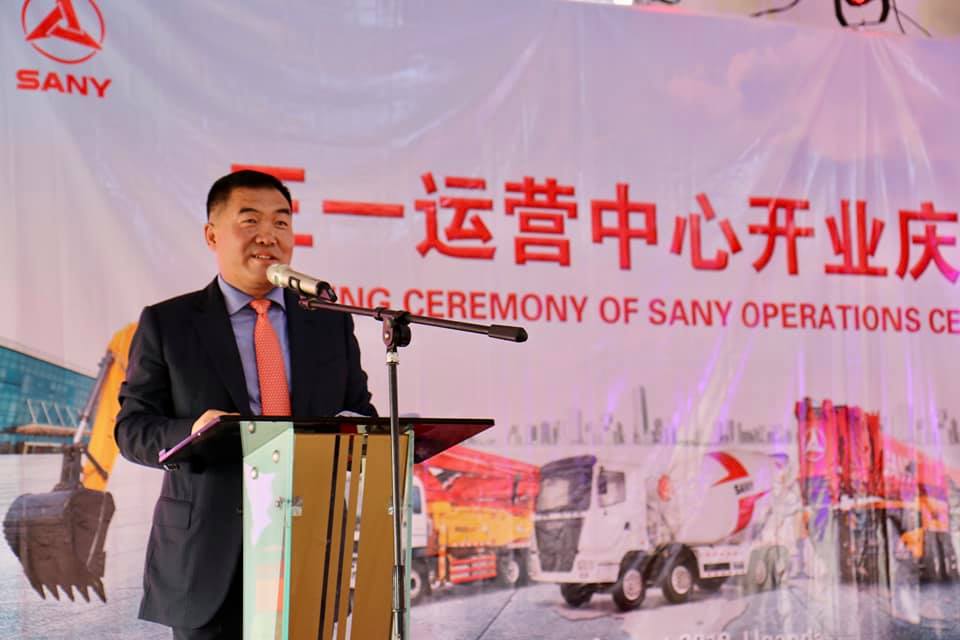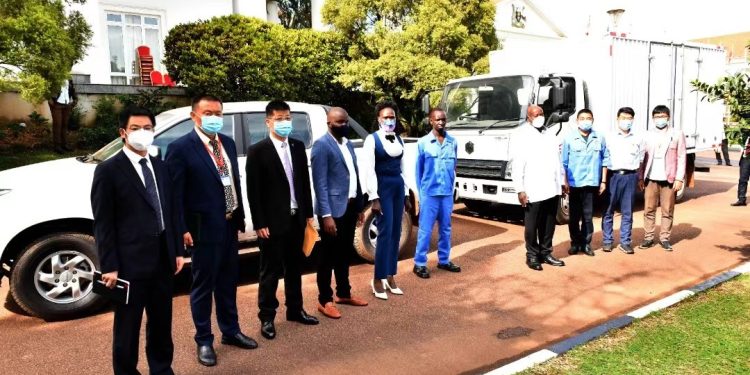In a dramatic escalation of tensions in Uganda’s Mbale Industrial Park, Liu Qingshan, the 62-year-old majority owner of NEC-Watu Automobile Company, has threatened to shut down his $6 million (222 billion shillings) vehicle assembly plant and return to China.
The investor accuses Tian Tang Group, a fellow Chinese company and the park’s landlord, of harassment and employing underhanded tactics to seize control of his factory.
Qingshan, a veteran engineer with decades of experience in China’s automobile industry, says he is being unfairly pressured by Tian Tang’s boss, Zhang Zhi Gang, who is allegedly attempting to push him out of the factory despite a lack of legal grounds.
In an interview with the media Qingshan shared his frustration and fears over the future of his business.
“Tian Tang only contributed land as equity in NEC Watu Automobile but never provided the land title,” Qingshan explained. “In fact, it is clear to any discerning person that this move is ultimately aimed at taking over our company because there is no evidence proving that the factory belongs to us, and they can expel us at any time.”
Qingshan’s NEC-Watu Automobile Company, which specializes in the production of FAW heavy trucks and JMC pickups, employs close to 200 workers and has already installed 120 vehicle units. If fully completed, the plant is projected to produce 3,000 to 4,000 vehicles annually, meeting a significant portion of Uganda’s market demand and creating thousands of jobs.
However, Qingshan is now questioning whether his company will survive the continued harassment from Tian Tang.
The investor did not hold back in his criticism of the government, which he claims has failed to address the issue. He expressed disbelief that Tian Tang was able to acquire land from the Ugandan government at extremely low prices and is now reselling it at massive profits, all while benefiting from state-funded infrastructure developments like roads and power connections.
“How can the government of Uganda give free land to Tian Tang to manage investors and the same company sells off land at a whopping USD 40,000 per acre!” Qingshan exclaimed. “And then on top of that, when we complain of unfairness, Tian Tang drags us to court! Where is the government?”
Qingshan further alleged that Tian Tang has become too powerful, even claiming that Zhang Zhi Gang wields more influence than the government itself.
“…Actually, Zhang ‘controls’ the government! He is given land at USD 245 per acre, he sells it at USD 40,000! Is the government serious?” Qingshan asked incredulously.
He issued a direct appeal to President Yoweri Museveni, warning that without government intervention, he would be forced to shut down the factory and relocate to Rwanda or Kenya.
“I want the President to know. If he doesn’t help, I will close and go to Rwanda or Kenya,” Qingshan stated bluntly.
Mbale Industrial Park
Qingshan’s plight is not an isolated incident. Other investors in Mbale Industrial Park are reportedly facing similar difficulties at the hands of Tian Tang Group. In a joint initiative with the Ugandan government, Tian Tang secured about 600 acres of land in the park on a 49-year lease. Despite paying just $5 per year for the lease—amounting to only $245 over the full 49-year period—the company has been accused of selling the land to fellow Chinese investors at prices ranging from $40,000 to $200,000 per acre.
A whistleblower alleged that Tian Tang Group pressures new investors to give up shares in their factories while benefiting from government-built infrastructure such as roads and power connections. The same whistleblower accused Tian Tang of driving up the cost of doing business, leading to inflated prices for locally produced goods.
“They could sell stockings for just sh2,000, but because of the rent and land costs from Tian Tang Group, they are forced to sell them for sh4,000,” the whistleblower said. “This is making them less competitive in the market.”

Many Chinese investors have reportedly gone bankrupt or left Uganda altogether due to the harsh conditions imposed by Tian Tang. Meanwhile, the Ugandan workers employed in these factories are losing their jobs, and the country risks losing more potential foreign investment as these shady practices continue.
Qingshan’s story has cast a spotlight on corruption within Uganda’s investment landscape, with growing concerns that officials at the Uganda Investment Authority and other government agencies may be complicit in these activities. Tian Tang Group has denied these allegations, and the matter is now in court.
As investors like Qingshan plead for intervention from President Museveni and senior government officials, the future of Uganda’s industrialization efforts hangs in the balance.
For now, it remains to be seen whether the government will step in to address these accusations and protect the interests of foreign investors who have helped drive the country’s economic growth.





